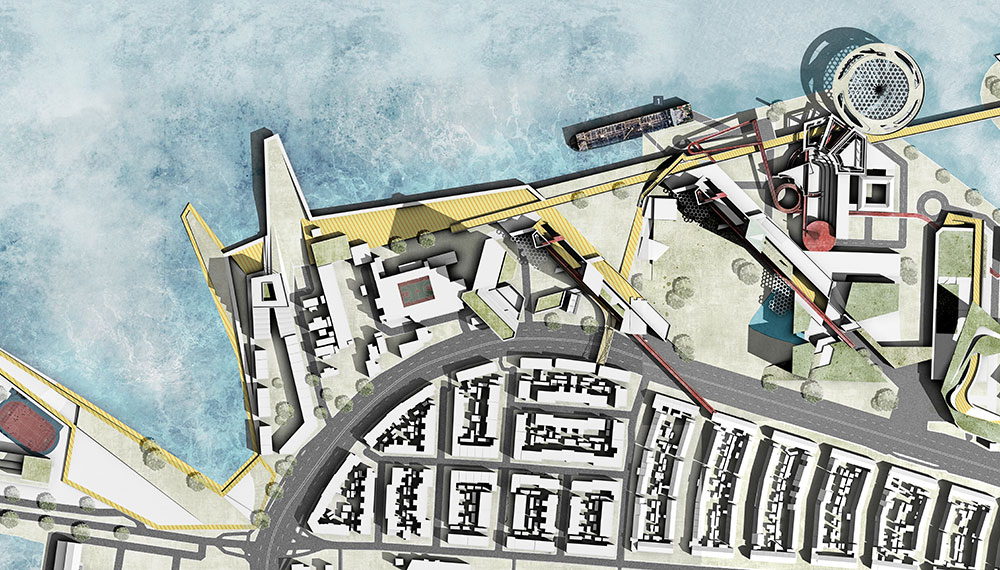Rivers, streams, canals, aquifers, reservoirs, lakes, seas, oceans: a defining characteristic of all urban settlements is their relationship to water and humans depend on water for almost every conceivable aspect of human existence: drinking, irrigation, waste disposal, defence, transport, power, health, leisure, beauty, spirituality. The power and unpredictability of rivers, tides and rains has historically created an ambiguous love-hate relationship between human cultures and their water sources, which has become the stuff of myth and religion, but also one of the central challenges of human engineering since the earliest settlements. Harnessing water has proved a critical but often elusive goal for all civilisations - since the industrial revolution and rapid urbanisation of the 20th and 21st centuries our success in managing waterbodies has led to their canalisation, undergrounding, pollution and sometimes almost complete disappearance from our lives. Today, global warming and climate change are bringing water back to the fore with increasing vulnerability to floods, rising seas, droughts and storms. The reinvention of our relationship to water is once again a central challenge for urban settlements and thus provides the focus of this year’s studio work.
This highly international programme expanded again in 22/23 with more than 160 students and nearly 30 staff forming a richly diverse and multi-disciplinary community including planners, landscape architects, historians, artists, environmental consultants, surveyors and architects. From Salford to Shanghai, six urban labs are each exploring ‘Hydrocity’ with a different focus. ‘The Dark River’ lab is concerned with flooding, rewilding, climate and community around the River Irwell in Salford. ‘Delta Urbanism’ is engaging with the Netherland’s challenges from life below sea level through scenario building. ‘Let it Flow’ is addressing sanitation, equitable infrastructure access, and resources sensitive design in Shanghai. ‘Ecosystemic’ takes the perspective of urban ecology to confront heat islands in Barcelona. ‘Canal Superhighways’ have been working in Burnley with both natural and engineered waterways. And ‘21st Century River City’ is studying the links between water, history and identity amongst flood risk. The projects presented are currently a work-in-progress - as a one-year masters we continue into a third semester over the summer.



